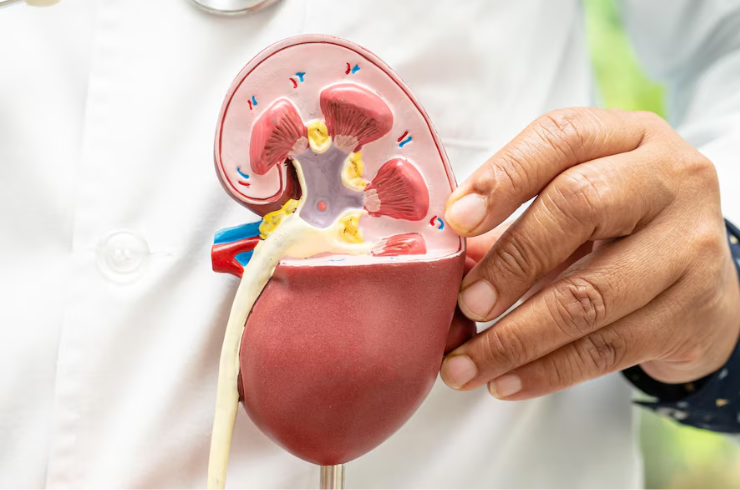Causes
- Diabetes: High blood sugar levels over time can damage the kidneys’ blood vessels and filtering units.
- Hypertension (High Blood Pressure): High pressure in the blood vessels can strain the kidneys, leading to kidney damage over time.
- Glomerulonephritis: Inflammation of the kidney’s filtering units (glomeruli) can impair their function.
Symptoms
- Fatigue: Feeling tired and lacking energy, often due to the build-up of waste products in the body.
- Edema (Swelling): Swelling, especially in the legs, ankles, or around the eyes, caused by fluid retention.
- Altered Urination: Changes in the frequency of urination, urine volume, or appearance (foamy or dark urine).
- Nausea: Feeling sick to the stomach, often accompanied by vomiting, due to the accumulation of toxins.
Management
- Control Underlying Conditions: Effective management of diabetes and hypertension through medication, lifestyle changes (such as diet and exercise), and regular monitoring.
- Medications for Symptoms: Prescription medications to manage symptoms like high blood pressure, anemia, or bone disease associated with CKD.
- Dietary Adjustments: A kidney-friendly diet that includes controlled amounts of protein, phosphorus, and potassium to lessen the kidneys’ workload.
- Dialysis or Transplant: In advanced stages, when kidney function is severely impaired, dialysis (a process to artificially filter blood) or kidney transplantation may be necessary.
Monitoring Regular check-ups with healthcare providers are essential to:
- Monitor kidney function and adjust treatment as needed.
- Prevent complications such as cardiovascular disease, bone disease, and anemia associated with CKD.
- Educate patients on managing their condition and making lifestyle changes to slow progression and preserve kidney function.
By addressing these aspects comprehensively, individuals with CKD can better manage their condition and improve their quality of life.

